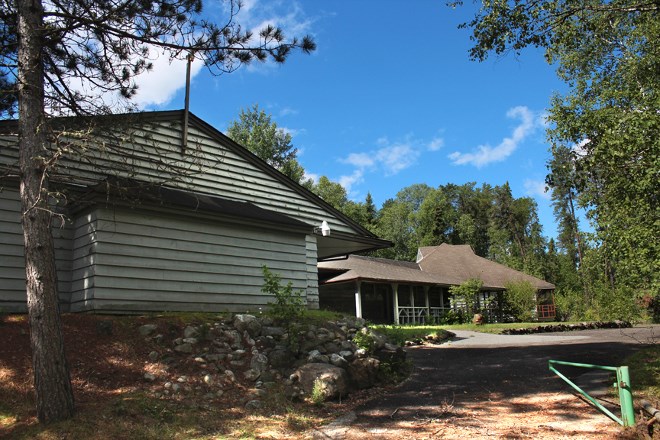An Atikokan-area training centre has returned to its roots by opening its doors to meetings and conferences.
Michael Heaton, owner of the Quetico College School, has been hosting drillers, contractors, First Nation and institutional groups, in generating business and revenue for his eventual dream of opening a private boarding school.
The former Quetico Centre was acquired by the Toronto educator in 2013.
For years, the centre had been largely vacant and usused. Heaton wants to eventually develop the facility into a not-for-profit, independent school for high school-aged students, while also booking a healthy calendar of conferences, workshops and training seminars.
The high school teacher is the sole owner, having thrown his life savings into buying the 88-acre property when it came up for sale.
He resides on the grounds year-round, maintaining the massive facility.
“It was a dream to start my own independent secondary school.”
Quetico was familiar ground to Heaton, who began his teaching career in nearby Atikokan.
As a student at Queen’s University in the 1970s, he produced a series of 16-millimetre promotional films of the centre’s programming.
Heaton later worked from the City of Toronto and built several BMX parks along with organizing summer camps for children.
At Quetico, he’s built a BMX and skateboard park to host sport summer camps for kids.
NORCAT, a Sudbury training and innovation centre, which maintains a satellite office in Thunder Bay, has been renting Quetico to run its forest equipment operators program.
The instructors and trainees have put the extensive acreage and their harvesting equipment to good use by carving out mountain-biking trails for Heaton.
“They’ve been very creative in looking over the whole property and picking excellent routes for trails. The students are cutting the trail with the equipment they’ve got.”
On average, Quetico hosts 12 to 15 corporate and training events a year, a number Heaton wants to improve upon.
“As much as possible, I’d like to get Quetico Centre back to being Quetico Centre, with a base of operations and other programs.”
Quetico and its stunning facilities on Eva Lake were built by a local planning committee in the 1960s as an adult education centre.
Cliff McIntosh was appointed the first director of the Quetico Conference and Training Centre, which quickly became a popular place for arts and crafts courses and outdoor programming like heavy equipment training.
Located 30 kilometres outside Atikokan, the expansive resort-like facility contains 21 buildings, including a dining hall; recreation centre with gym, indoor pool, sauna and fitness centre, a 70,000-square-foot conference centre, and accommodations for 90 guests in three motel-style residences.
Five homes are also available for rent. The two-storey buildings were inhabited by Quetico staff years ago, and come complete with full kitchens, dining rooms and washers/dryers.
“These are not cabins in the bush. These are actual homes,” said Heaton.
The centre also offers ample space for conference goers to socialize with lounges in the recreation hall and an outdoor fire pit.
Heaton employs both a local caterer and, for larger groups, flies in chefs from Toronto.
“I have friends in the food industry. They just love coming up here. It’s such a joy for them to work with a group that’s so different from the city.”
Heaton said McIntosh cleverly built the conference centre in phases.
Each section is independent with its own meeting space, breakout rooms, washrooms, and coffee facilities, enabling three 100-person conferences to run simultaneously.
“It’s pretty novel.”
The property also contains an RV campground with water and electric hookups.
“That’s the thing about Quetico, there are so many possibilities.”
To keep his private school dream alive, Heaton continues to recruit for staff and wants to make inroads with Indigenous groups in promoting Quetico as a potential school for young people from remote communities.
“Here I’ve got these first-class accommodations, somehow this has got to come together and happen.”
He marvels at the possible educational synergies of having government scientists and researchers stay as conference guests and teaching his students in the field.
“That would be amazing.”




